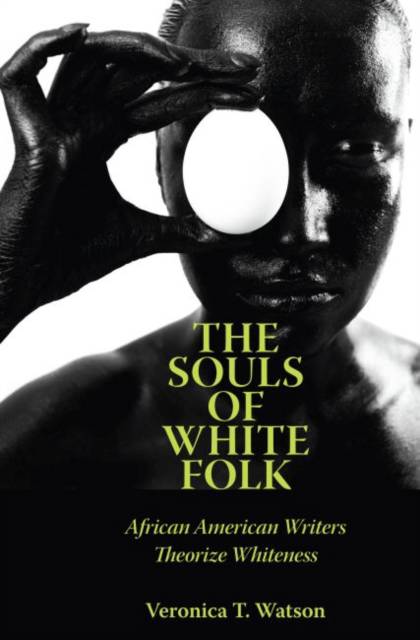
- Afhalen na 1 uur in een winkel met voorraad
- Gratis thuislevering in België vanaf € 30
- Ruim aanbod met 7 miljoen producten
- Afhalen na 1 uur in een winkel met voorraad
- Gratis thuislevering in België vanaf € 30
- Ruim aanbod met 7 miljoen producten
Zoeken
€ 59,45
+ 118 punten
Uitvoering
Omschrijving
The first book to examine whiteness as an intellectual tradition within African American literature The Souls of White Folk: African American Writers Theorize Whiteness is the first study to consider the substantial body of African American writing that critiques whiteness as social construction and racial identity. Arguing against the prevailing approach to these texts that says African American writers retreated from issues of "race" when they wrote about whiteness, Veronica T. Watson instead identifies this body of literature as an African American intellectual and literary tradition that she names "the literature of white estrangement." In chapters that theorize white double consciousness (W. E. B. Du Bois and Charles Chesnutt), white womanhood and class identity (Zora Neale Hurston and Frank Yerby), and the socio-spatial subjectivity of southern whites during the civil rights era (Melba Patillo Beals), Watson explores the historically situated theories and analyses of whiteness provided by the literature of white estrangement from the late nineteenth through the mid-twentieth centuries. She argues that these texts are best understood as part of a multipronged approach by African American writers to challenge and dismantle white supremacy in the United States and demonstrates that these texts have an important place in the growing field of critical whiteness studies. Veronica T. Watson, Indiana, Pennsylvania, is an associate professor of English at Indiana University of Pennsylvania. She is also the director of the Frederick Douglass Institute for Intercultural Research. Her essays have been published in Mississippi Quarterly and the Journal of Ethnic American Literature, among others.
Specificaties
Betrokkenen
- Auteur(s):
- Uitgeverij:
Inhoud
- Aantal bladzijden:
- 170
- Taal:
- Engels
- Reeks:
Eigenschappen
- Productcode (EAN):
- 9781496802453
- Verschijningsdatum:
- 1/04/2015
- Uitvoering:
- Paperback
- Formaat:
- Trade paperback (VS)
- Afmetingen:
- 152 mm x 229 mm
- Gewicht:
- 276 g

Alleen bij Standaard Boekhandel
+ 118 punten op je klantenkaart van Standaard Boekhandel
Beoordelingen
We publiceren alleen reviews die voldoen aan de voorwaarden voor reviews. Bekijk onze voorwaarden voor reviews.








